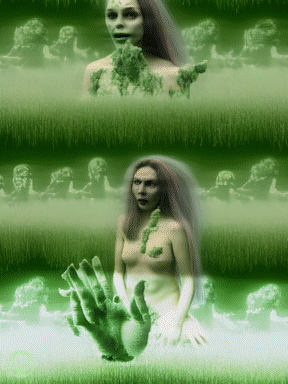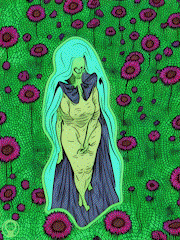13 Doors, No. 4: Frankenstein

In this series that we began earlier this year, we are using Hekate's key #13 with channeled guidance to unlock timely messages and energies from selected texts. This key leads us to kernels related to the power of transformation and Mother Goddess energy that have been seeded by Hekate and other Spirit Guides in cultural production and the global unconscious over time.
This month, we visit Mary Shelley's novel Frankenstein.

We unlock door no. 4.
In Chapter 13 of Frankenstein, the monster observes at a distance a strange woman arrive, an outsider like him who tries to integrate with the family on whose property he is hiding. Socialization—even vicariously—with its false binaries and dissonance, and its knowledge of hierarchy, begins to tear the monster from himself in order to foster shame. This is one of the shackles that bind us to the social and institutional structures we live in that intentionally benefit exploitative spiritual forces. At the same time, the natural environment around our characters blooms and blossoms freely.

We discern the message:
Strange woman, monster, those in between the tears of society, at the holographic borders of simulated empires, amidst the burgeoning wild blooming forth: listen to the language of "the black ground covered with herbage, and the green banks interspersed with innumerable flowers, sweet to the scent and the eyes, stars of pale radiance among the moonlight woods."

Shelley, Mary Wollstonecraft. 1818. Chapter 13. In Frankenstein or, The Modern Prometheus. Retrieved from: https://www.gutenberg.org/files/84/84-h/84-h.htm#chap13.

